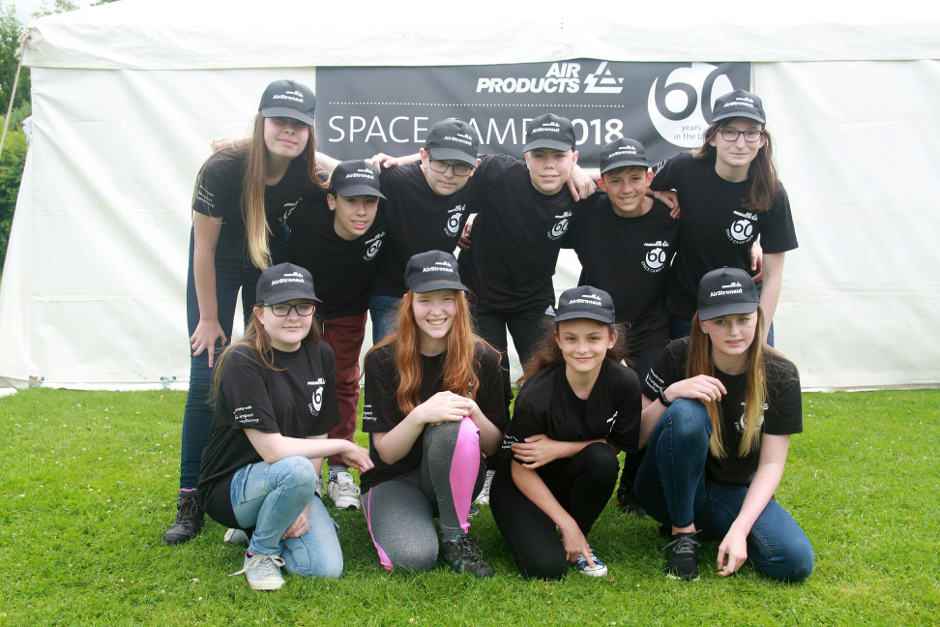Denise Giddy, engineer, and European machinery manager at Air Products, explains how it can be done
Between 2015 and 2016, just 16 per cent of those who started an engineering or technology degree were women. That’s according to Engineering UK’s recent Gender disparity in engineering report which was published recently. Those figures aren’t surprising though when you consider only 25 per cent of 16-19-year-old girls surveyed, said they would ever consider a career in engineering.
While I’m sure those statistics are much improved from when I joined the industry 30 years ago, there’s still significant room for improvement. For me, the message to take home from this is clear - we need to start engaging girls at a much younger age, before their career ambitions have started to take shape.
Whether we mean to or not, the language we use to talk about STEM careers and the images we use to portray them can have a lasting impact on children. It was interesting to note from Engineering UK’s report that girls as young as seven were already more likely to describe jobs like mine as ‘too complicated’ or a ‘career for men’.
Ultimately, if we’re to change this thinking on a nationwide scale, the idea of women in engineering needs to be normalised. And that requires real examples of successful careers and positive stories at all levels of the profession. This could be achieved through regular visits to primary schools to talk about the varied work engineers are involved in – or by encouraging girls to take part in STEM based programmes and initiatives that inspire them.
As an example, we recently held a week-long residential Space Camp to engage young people in science. It brought together students with the best and brightest minds in all things ‘space’ and included workshops from a female astronaut-in-training and a female astrophysicist. The camp was for girls and boys aged between 11 and 13 and gave the children experiences they’ll carry with them for a lifetime. It’s activities like these, where children can engage with men and women actively working in STEM careers, that can make all the difference when it comes to choosing study options at GCSE, A-Level and beyond.

But of course, it’s not just the perceptions of children we need to think about – it’s their parents too. Efforts to inspire the next generation of female engineers will be in vain if their new-found aspirations are met with doubt, concern, or even prejudice by their parents. Even now at community events, it’s not uncommon to hear a parent state ‘engineering is not a career for my daughter’.
To tackle this issue at source, later this year we’ll be running panel discussions across the UK where girls, and their parents, have the chance to quiz a diverse panel of STEM professionals on everything from career progression to pay scales and in-work attitudes. We hope it will offer a genuine insight into the exciting diversity and opportunity that a STEM career can offer.
That’s not to say things aren’t already changing for the better - they are. There are more and more stories of women working in STEM careers out there. But these often include reference to the hurdles women have had to overcome, and the barriers that have been put in their way. We should talk about these – I had some of my own experiences, especially when I started out – but I’m concerned that young women will fear being treated differently in an engineering career.
That’s why I think it’s really important for women like me to share positive stories of their careers. I’m proud of the fact that I head up a team of twelve engineers and that my counterparts in Asia and the US are also female. I enjoy a workplace of like-minded people, from a variety of backgrounds and disciplines
Of course, there are issues that remain, but let’s also focus on the areas where we’re making gains. It’s vital that young people can see just how varied and fulfilling an engineering career can be.
It would be fantastic to get to a place where no-one bats an eyelid at the idea of women having a career in engineering or any of the other STEM subjects. This is achievable, and perhaps in less time than we think. So, let’s start reaching out now so that the seeds of an engineering career are planted early and remain with them through education and beyond.
Denise Giddy is European machinery manager at Air Products











Water Sector Talent Exodus Could Cripple The Sector
Maybe if things are essential for the running of a country and we want to pay a fair price we should be running these utilities on a not for profit...